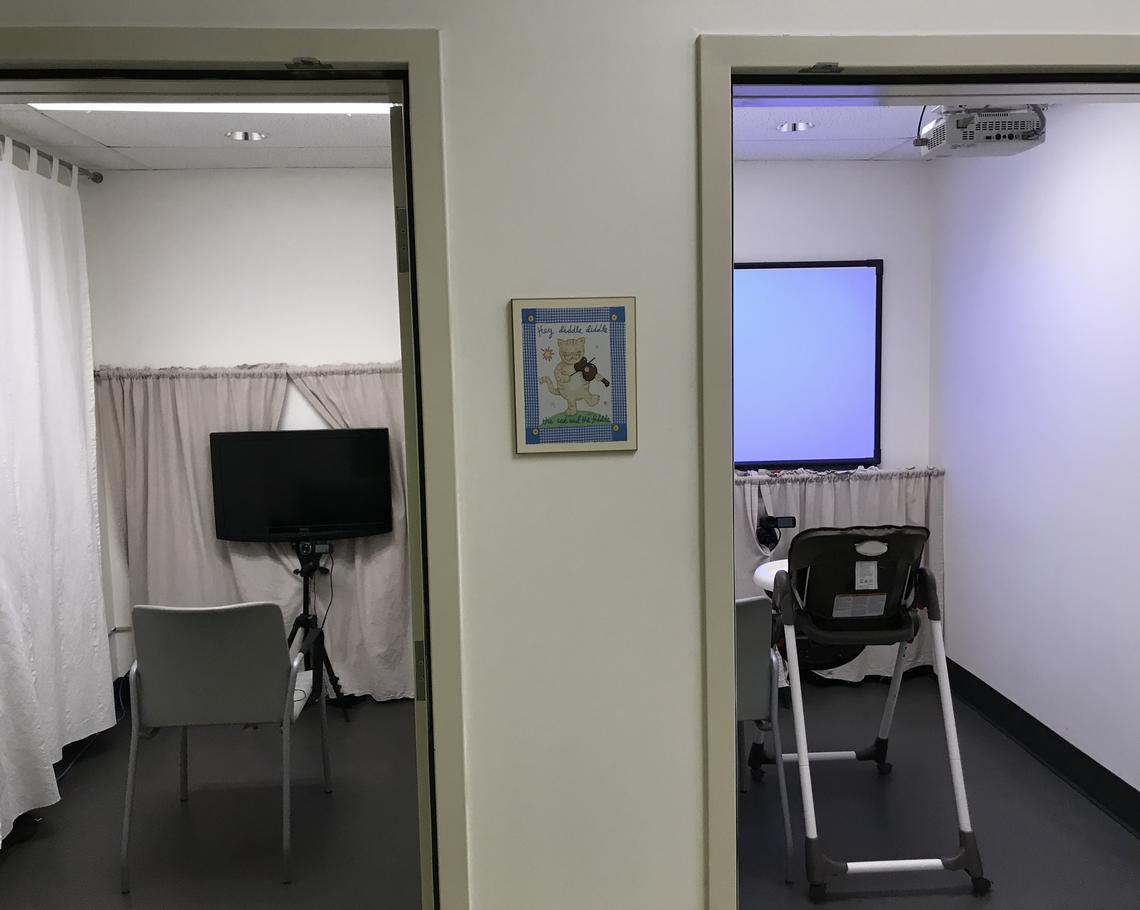
Our Research
We study children from a few months after birth up to five years of age, exploring children's early language preferences and abilities, focusing on how infants perceive the sounds of their language and how they learn about words. Within this area we ask many different questions - for example, how do infants learn the sounds specific to not only their own language, but their own dialect? How do they learn to tell apart nouns from verbs? Our research also sometimes includes studying adult populations, to understand the connection between language learning in early development, and language in adulthood, such as when learning a second language. Please read on and learn more about the research that we do!
Typically Developing Infant Studies
Most of our research focuses on infant language development. From learning to tell apart different sounds, to a more complex understanding of words and sentences, we want to better understand how language development unfolds in young children. We have many ongoing studies, usually with infants aged 6 months to 2 years of age. Click the link below to read more!

Babysibs Project
One of our major research projects over the past several years has been investigating the relation between language development, human face and voice processing, and other foundational motor and processing skills in infants whose older siblings have been diagnosed with Autism Spectrum Disorder. The BabySibs Project was a longitudinal study with the aim of helping us recognize signs of Autism Spectrum Disorder at an earlier age, with the ultimate goal of helping children with Autism receive necessary help at an earlier age.
We are no longer recruiting participants. Thank you to all of the families who graciously dedicated their time to helping us complete this study!
If you or your child are in need of assistance or have concerns, please click on our resources tab for more information on available community resources.

